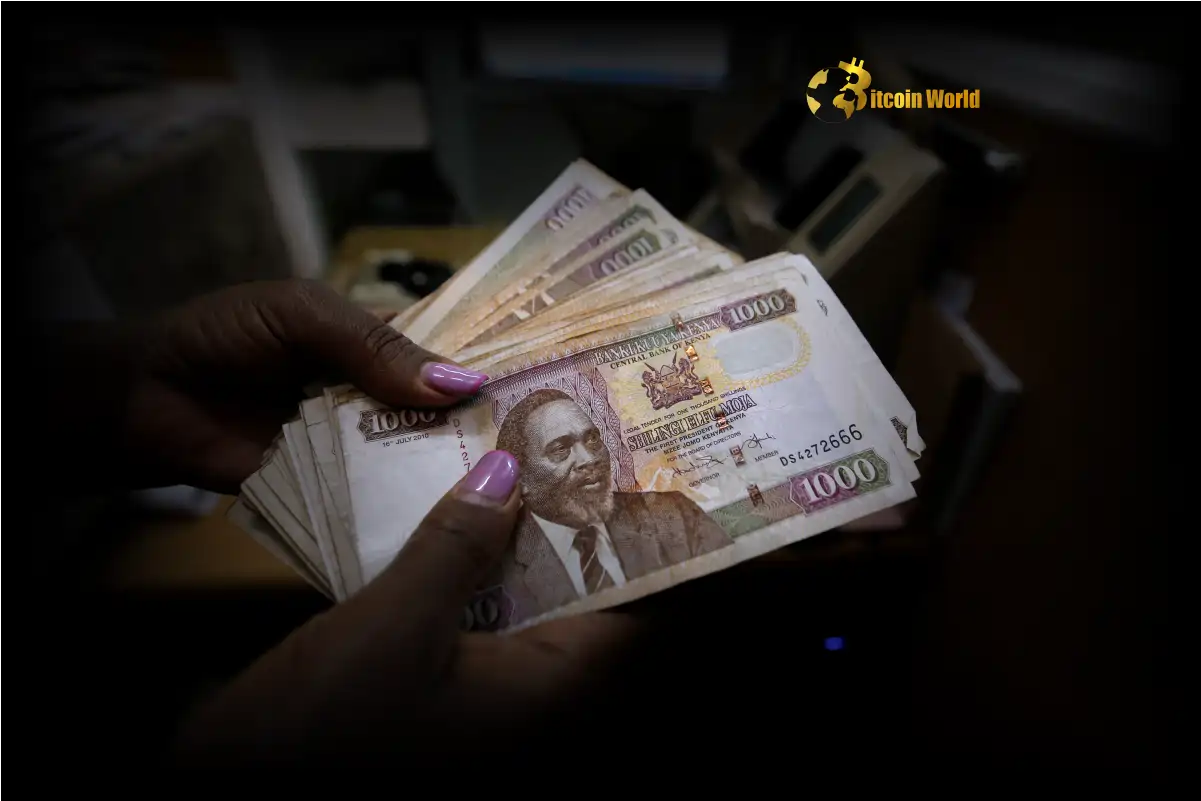Resilient Kenyan Shilling: How Low Dollar Demand Fuels Currency Stability
0
0

In the dynamic world of forex and cryptocurrency, stability can feel like a rare gem. But for Kenya, there’s a story of resilience unfolding in its currency markets. The Kenyan shilling (KES) has demonstrated remarkable stability against the US dollar recently, a development that has significant implications for the Kenyan economy and forex traders alike. Let’s dive into the factors behind this steadiness and what it means for you.
Why is the Kenyan Shilling Showing Such Currency Stability?
The primary driver behind the shilling’s stability is a notable decrease in dollar demand. Several factors contribute to this reduced demand:
- Reduced Import Appetite: Kenya, like many economies, experiences fluctuations in import volumes. A temporary dip in demand for imports translates directly to less need for dollars to pay for these goods.
- Increased Local Currency Preference: There might be a growing preference for transacting in local currency within Kenya. This could be due to government policies, increased confidence in the shilling, or simply market dynamics.
- Foreign Exchange Reserves Management: The Central Bank of Kenya (CBK) plays a crucial role in managing foreign exchange reserves. Prudent management and interventions can help maintain currency stability even during periods of volatility.
- External Factors: Global economic conditions and investor sentiment towards emerging markets can also influence dollar demand. Positive shifts in these areas can lessen the pressure on the shilling.
It’s important to understand that currency stability is not a static state. It’s a dynamic equilibrium influenced by a multitude of economic forces. However, the current situation provides a breather and an opportunity for the Kenyan economy.
The Impact of Low Dollar Demand on Kenya’s Forex Market
Lower dollar demand has a ripple effect throughout Kenya’s forex market and the broader economy. Let’s break down some key impacts:
| Impact Area | Description | Benefit |
|---|---|---|
| Inflation | A stable or strengthening shilling can help curb imported inflation. Since many goods are priced in dollars, a stronger shilling makes imports cheaper in local currency terms. | Potentially lower prices for consumers on imported goods, easing cost of living pressures. |
| Investor Confidence | Currency stability often boosts investor confidence. Both local and foreign investors are more likely to invest in an economy with a predictable currency environment. | Increased investment inflows, potentially leading to economic growth and job creation. |
| Debt Servicing | For a country with dollar-denominated debt, a stable or stronger shilling reduces the cost of debt servicing in local currency terms. | Frees up government resources that can be allocated to other development priorities. |
| Business Planning | Businesses, especially those involved in import and export, benefit from a stable exchange rate. It makes financial planning and pricing more predictable. | Reduced exchange rate risk for businesses, fostering a more stable operating environment. |
Navigating the Forex Market: Actionable Insights for Traders
For those involved in the forex market, whether you’re a seasoned trader or just starting, the Kenyan shilling’s current stability offers both opportunities and considerations:
- Monitor CBK Actions: Keep a close watch on the Central Bank of Kenya’s monetary policy announcements and interventions in the forex market. These actions can significantly influence the shilling’s trajectory.
- Analyze Import-Export Data: Track Kenya’s import and export figures. Changes in trade balances are leading indicators of future dollar demand and shilling movements.
- Consider Emerging Markets Sentiment: Global investor sentiment towards emerging markets plays a role. Positive global flows can support the shilling, while negative sentiment can create pressure.
- Diversify Your Portfolio: While the shilling is currently stable, the forex market is inherently volatile. Diversification across different currencies and asset classes remains a prudent strategy to manage risk.
- Stay Informed on Kenyan Economic News: Keep abreast of Kenyan economic news, including inflation reports, GDP growth figures, and political developments. These factors can all impact the shilling.
Are There Challenges to Kenya’s Currency Stability?
While the current stability is encouraging, it’s essential to acknowledge potential challenges that could impact the Kenyan Shilling in the future:
- Global Economic Shocks: Unexpected global economic downturns, commodity price fluctuations, or geopolitical events can trigger capital outflows and put pressure on the shilling.
- Increased Import Demand: As the Kenyan economy grows, import demand may rebound, potentially increasing the need for dollars and putting downward pressure on the shilling.
- External Debt Sustainability: Kenya’s external debt levels remain a point of concern. Servicing this debt requires foreign currency, and any strain on the balance of payments could affect the shilling.
- Political Uncertainty: Political transitions or instability can sometimes lead to capital flight and currency volatility.
Addressing these challenges requires proactive economic management, including fiscal discipline, diversification of exports, and policies to attract stable foreign direct investment.
The Resilient Shilling: A Beacon of Hope?
The resilient Kenyan shilling, buoyed by low dollar demand, presents a positive narrative for Kenya’s economy. It offers a period of stability that can foster growth, reduce inflationary pressures, and enhance investor confidence. For forex traders, understanding the dynamics at play is crucial for navigating the market effectively. While challenges remain, the current stability provides a foundation upon which Kenya can build a stronger and more prosperous economic future.
To learn more about the latest Forex market trends, explore our article on key developments shaping macro trends liquidity.
0
0
 Manage all your crypto, NFT and DeFi from one place
Manage all your crypto, NFT and DeFi from one placeSecurely connect the portfolio you’re using to start.







